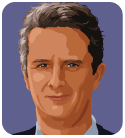In a country of over 15 million inhabitants, treatment for autism in Guatemala has until recently been restricted to parental support groups. There is no state support and the best-known organization in the field, Asociación Integrame, can only provide classes for 50 families—but not treatment.
With an estimated 15,000 to 20,000 diagnosed cases of autism in Guatemala and a majority of the population under 18, some experts have said the true amount of autistic people in Guatemala is at least double.
Events such as the Walk for Autism Day in 2011 have raised awareness of the condition. Asociación Integrame used the slogan, “El autismo es parte de este mundo no un mundo aparte,” or “Autism is part of this world, not a world apart.”
However, in a country where social programs focus on the provision of a basic standard or living, autism research has not been high on the governmental agenda.
There is hope for the future with the Centro para Autismo y Necesidades Especiales Relacionadas (Center for Autism and Related Special Needs—CANER) in Guatemala City’s Galileo University. Director Stuardo Monroy is a father but, unusually for Guatemalan autism organizations, not of an autistic child.
“It has been a purely professional passion, as well as a willingness to develop a much needed field in my country,” says Monroy.
With over a decade of experience working with autistic people in Oxford, England, Monroy returned to Guatemala to head up CANER. What awaited him upon his return was a clear need for a strategic approach.
Monroy says, “Research has been absolutely non-existent. Every single organization or foundation created to aid those with autism has been formed by parents. Diagnosis on the other hand has been plentiful, regretfully most of it very inaccurate and to no, or very little benefit to the families who obtain it.”
Those families that do have the resources and will to see out autistic diagnoses complain they find themselves on a medical carousel, moving from one specialist to the next. The extent of the specialty is variable, given the willingness of psychologists to work outside their normal field and parents using their services rather than autism specialists.
At best, this leads children to being labeled “a dead-end or lost cause” at worst physical pain to go with the psychological trauma. Some parents are unable to cope with their offspring, have disappeared or died, leaving autistic children at the mercy of their siblings, if they have any. With struggles of their own, this can lead to autistic children joining the many street kids that get by as best they can, slipping through the fragile social security system in place.
Child psychologist Carmen Olivero laments, “Parents that believe their autistic children are in some ways ‘bad or broken’ is to be expected when access to autism treatment is so limited.
“It really is a national tragedy.”
The stigma of an autistic diagnosis is such that parents may choose not to seek treatment. Autistic children rarely get to go to school; instead they are hidden at home but this social shame affects parents of all means.
“When a child is diagnosed within a school, be that a public or private one, very little, if any accommodations are set into place in most institutions, converting the diagnosis into nothing more than a label,” notes Monroy. “Having said that, there is an increasing amount of special needs schools as well as mainstream schools, who are willing to immerse themselves in the realm of psychopathologies and genetic divergence and give these children a chance at a standard education.”
Guatemala City’s municipal council has been open to the issue and has given access to the capital’s day-care and public school system to train teachers in recognizing symptoms and to initiate the country’s first autism census.
The wealthy can afford to send their children to the United States for treatment and provide an environment in the home that will stimulate the child. Many of the doctors in Zone 10 of Guatemala City are U.S.-trained but this can lead to its own problems.
“The statistics we often use from the U.S. are skewed due to governmental aid, where parents and schools will try to push for an autism spectrum disorder, even if the child clearly does not have it, to get better benefits and greater access to services. In the case of some schools, to fulfill a quota which gets them much better equipment or financial backing,” says Monroy.
With improved diagnostic testing and awareness of the conditions in the autism spectrum, the amount of children being labeled autistic has increased. CANER is developing across-the-board training to deal with this, although Monroy was at pains to point out there is no “global pandemic of autism.”
In addition, CANER is looking to standardize the diagnosis and testing of autism. Through the Guatemalan Autism Foundation, CANER will be open to anyone of any means. Usable statistics are being gathered to give an idea of the scale of the problem in the country. Finally, outreach programs will train professionals to help their communities and continue the work previously undertaken by parents. The U.S. Fulbright program offers an annual scholarship for work in the autism field.
“It might take some time to have all five programs fully operational, but we are relentlessly working towards this goal,” assures Monroy. “There are still thousands of people out there who go without any sort of aid, and the longer the services take to get to them, the harder the work gets.”
Nic Wirtz is a freelance journalist who has lived in Guatemala for the last six years. His work has been featured on the Christian Science Monitor and GlobalPost, and he is editor for the website Vozz.




